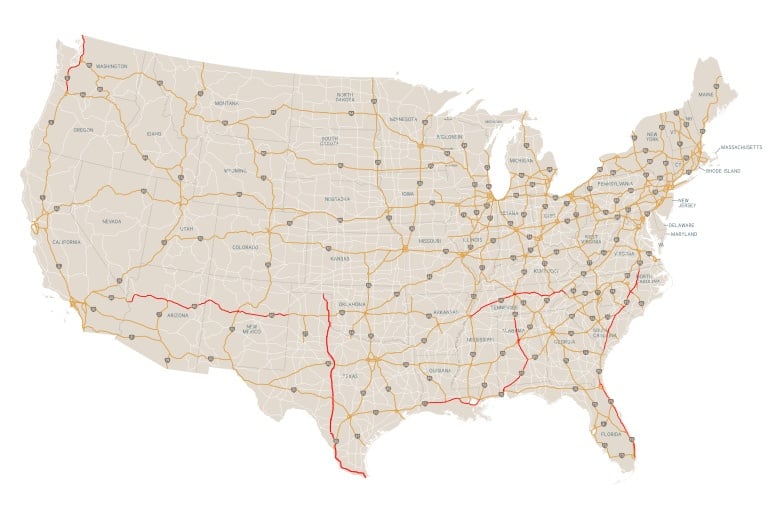
As families gear up for holiday road trips this year, it's crucial for drivers to stay vigilant and prepared for potential risks. Despite fewer drivers on the roads, traffic fatalities increased in 2020, which is a trend that has continued in the two years since.
Numerous factors contribute to the surge in crashes and fatalities, even with a reduction in total miles driven. Speeding, road rage, and drowsy and distracted driving are just a few of the contributing factors.
Holiday driving introduces its own set of dangers, further exacerbated by the recent upswing in accidents, traffic, speeding incidents, and aggressive driving. While you can't control external factors on the road, being equipped with the right responses in various situations can significantly contribute to the safety of you and your loved ones. Watch this FREE video and share it with your friends and family to help ensure everyone stays safer on the roads this holiday season.
How to Prepare for Family Travel
Being prepared is the best way to stay safe while driving. Here are five tips to help you prepare for your next family road trip or simply daily driving during this busy time of year.
1. Factor in additional time to account for traffic and delays.
While the eagerness to reach your destination may be high, prioritizing the safety of you and your family is paramount. If you're facing a lengthy drive, consider departing early to ensure ample time on the road.
Traffic and delays will likely increase your travel time. You have no control over other drivers’ actions, but you can plan to stay calm behind the wheel. Planning ahead will help you remain patient, reduce the likelihood of speeding or aggressive driving, and make safe driving choices. Controlling your actions is all you can do to keep yourself and your passengers safe.
2. Get plenty of sleep before getting on the road.
Drowsy driving is a significant problem, with nearly 700 deaths from drowsy driving occurring in 2019 alone. Being aware of what’s going on with your body and mind can be challenging, but getting plenty of sleep before a long drive is essential to ensure that you and your family arrive safely at your destination.
Most adults need between 6 to 9 hours of sleep each night to remain alert throughout the day. It is much more challenging to focus and concentrate when driving if you lack sleep. Lack of sufficient sleep can cause you to become less alert, affecting your coordination, reaction time, and judgment while driving. In these ways, drowsy driving is similar to driving while impaired.
3. Limit in-vehicle distractions.
Distracted driving remains a leading cause of traffic-related crashes and deaths annually. While texting and talking on the phone are major driving distractions, there are many other types of distracted driving, including checking GPS and navigation systems, changing the radio station or music, searching for controls in your vehicle, eating, drinking, and even experiencing stress and fatigue.
Limit in-vehicle distractions as much as possible before getting on the road. If you’re using a navigation system, plan your route so you can concentrate on the drive. Keep your phone silent during your trip let your passenger be the co-pilot, and do the texting and calls if needed. If you need to take a break to rest or eat, pull over to a safe area or let another adult passenger take the wheel for a while.
4. Prepare your vehicle for winter weather.
Common winter weather conditions like rain, snow, ice, and fog severely impact roadways. Nearly half a million people are injured in weather-related crashes on roads every year, resulting in almost 6,000 fatalities on average.
Though there is nothing you can do about the weather, there are some steps you can take to safeguard yourself and your vehicle before getting on the road. Before a trip, make sure your wiper blades and defroster are working well and that your mirrors and headlights are clean.
Ensure your tires are inflated and have good tread and that your brake pads are in good shape. It also helps to have an emergency kit with snow chains, blankets, water, and roadside flares if you get stranded or have an emergency.
5. Learn The Smith5Keys®.
By learning The Smith5Keys — Smith System’s proven principles for avoiding crashes — you can create a safer driving culture for yourself and your family. The Keys help drivers ensure they have the space, visibility, and time to make the best possible decisions while driving under any conditions.
By learning these essential principles and sharing them with your family members, you are helping to ensure that everyone is prepared to manage risks on the road.
Getting in the driver’s seat is a big responsibility that is often taken for granted. With “Driving Family,” your ride just got a whole lot safer. Watch the FREE video now.






